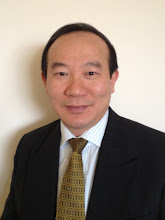TCM treatment for PID and infertility
It can result in permanent damage to a woman’s reproductive organs.
PID can be difficult to recognise as some women may have severe symptoms while others may have mild or even no symptoms at all.
Acute PID comes on suddenly and tends to be more severe, whereas chronic PID is a low grade infection that may cause only mild pain and sometimes backache.
The most common symptoms and complications of PID include:
· pain and tenderness around the pelvis or lower abdomen
· pain during sexual intercourse that is felt deep inside the pelvis
· bleeding between periods
· irregular, heavy or painful periods
· heavy, unpleasant smelling vaginal discharge
· infertility
PID occurs when bacteria from the vagina or cervix infiltrate the normally sterile pelvic organs. PID is usually the result of a sexually transmitted infection such as chlamydia or gonorrhea.
Your doctor may recommend hospitalization or outpatient treatment with follow up. Outpatient therapy consists of rest and medications, usually antibiotics. Some conditions, such as an abscess in the ovary or fallopian tube, may require surgery. Patients being treated for PID should abstain from sexual intercourse throughout the course of treatment. It is essential to evaluate and treat male sex partners. It's important to initiate treatment immediately after diagnosis to prevent long term complications.
According to TCM theory, PID often manifesting itself in the form of salpingitis and fallopian tube inflammation is usually caused by an infection of damp-heat pathogen. It may also be caused by Liver Qi stagnation transforming into internal heat. Salpingitis may lead to fallopian tube blockages. This occurs when damp-heat leads to blood stasis. This is when the infection and inflammation leads to the formation of scar tissue. In addition, residual serious fluid and pus may cause pain during menstruation and sexual intercourse. This may also cause pain upon sitting and standing when the fluid moves downward in the lower abdominal region. The major indications for any form of PID are a combination of lower abdominal pain combined with leukorrhea.
Patients experiencing the signs and symptoms of fallopian tube blockages can often resolve this condition by taking Chinese herbal medicine to cool heat in the blood, remove blood stasis, and circulate the Qi and to clear heat and toxins. Even in cases when acute PID is so severe that immediate hospitalization is required, it may be necessary to follow-up at a later date to clear residual pathogenic factors that lodge in the connective tissues of the pelvis. A combination of acupuncture and herbal medicine is effective for resolving this chronic problem that is often treated with multiple exploratory surgical procedures in the biomedicine setting when antibiotics are ineffective.
Acupuncture may help enhance immune function and reduce pain and inflammation, especially in women with chronic PID. TCM doctors often target their treatment to draining what they call “Damp Heat” from the area. This is done using both acupuncture and Chinese herbal preparations.
In my practice, I use acupuncture and Chinese herbal medicine to treat many patients with PID. The results of such treatment have been excellent, and have allowed many infertile women to live their dream of becoming pregnant.

